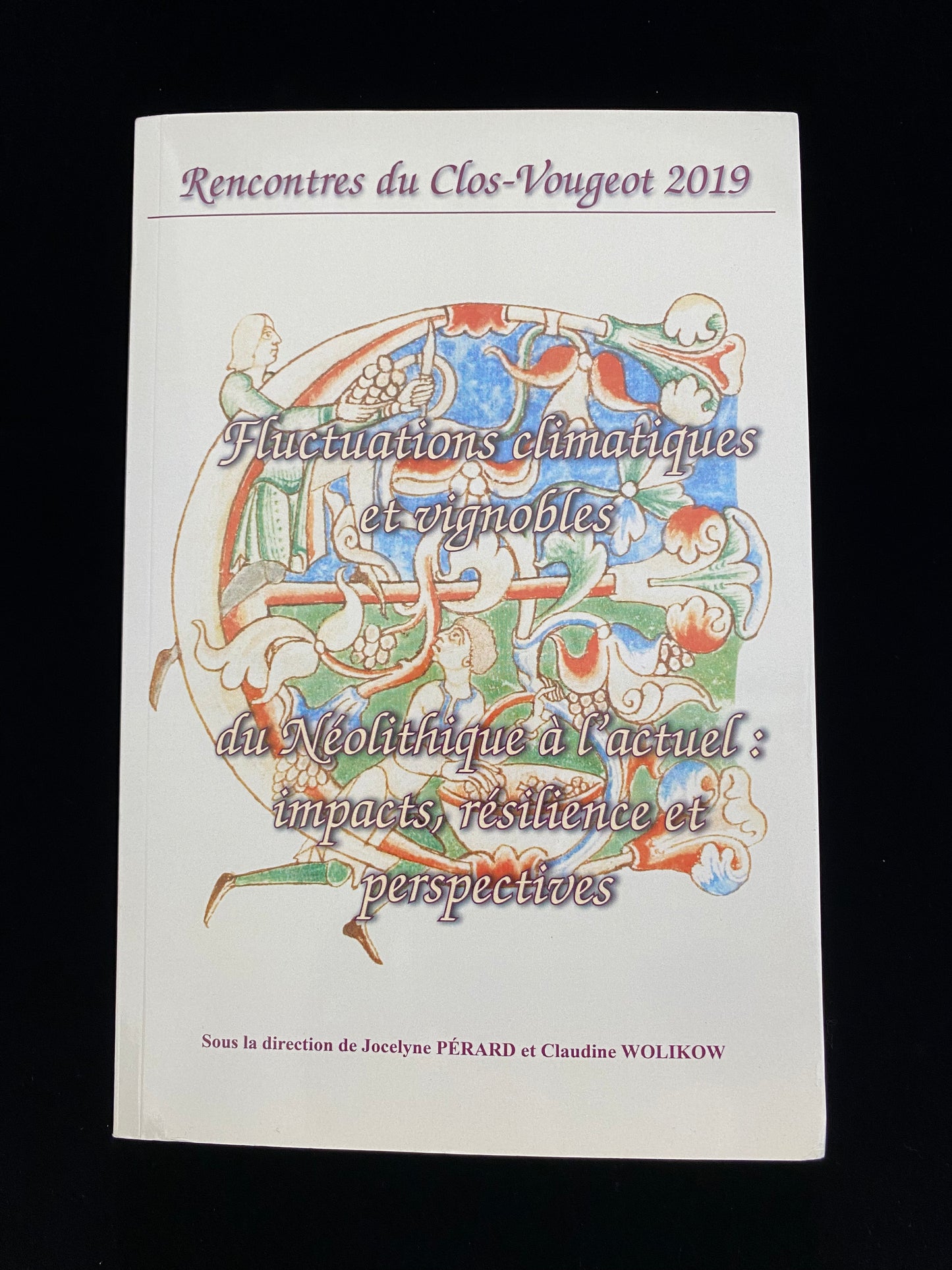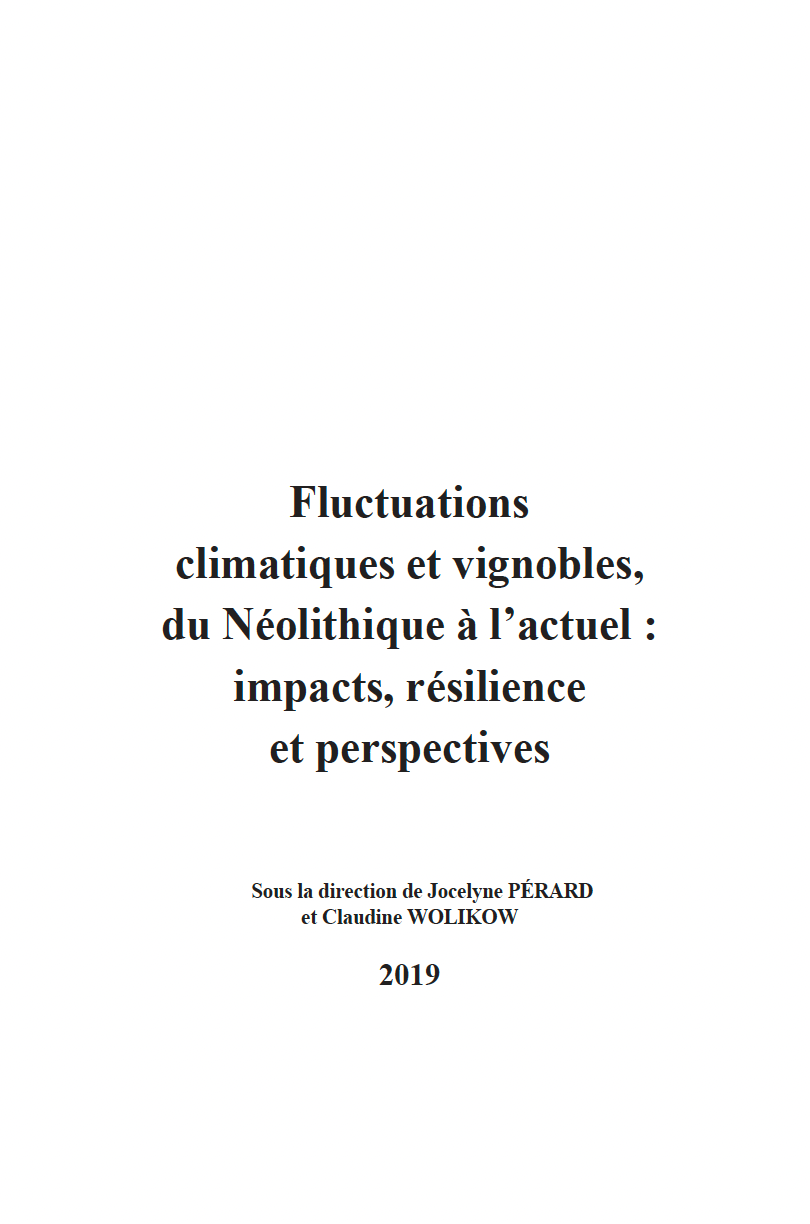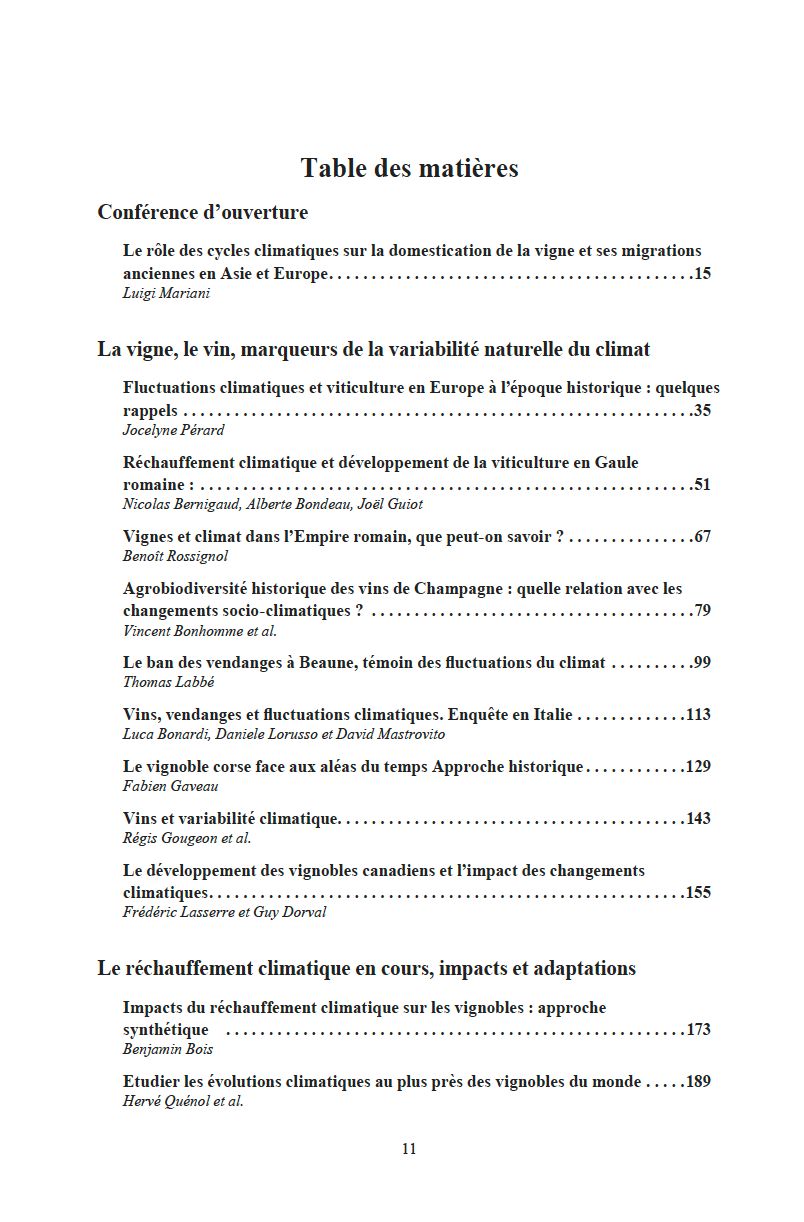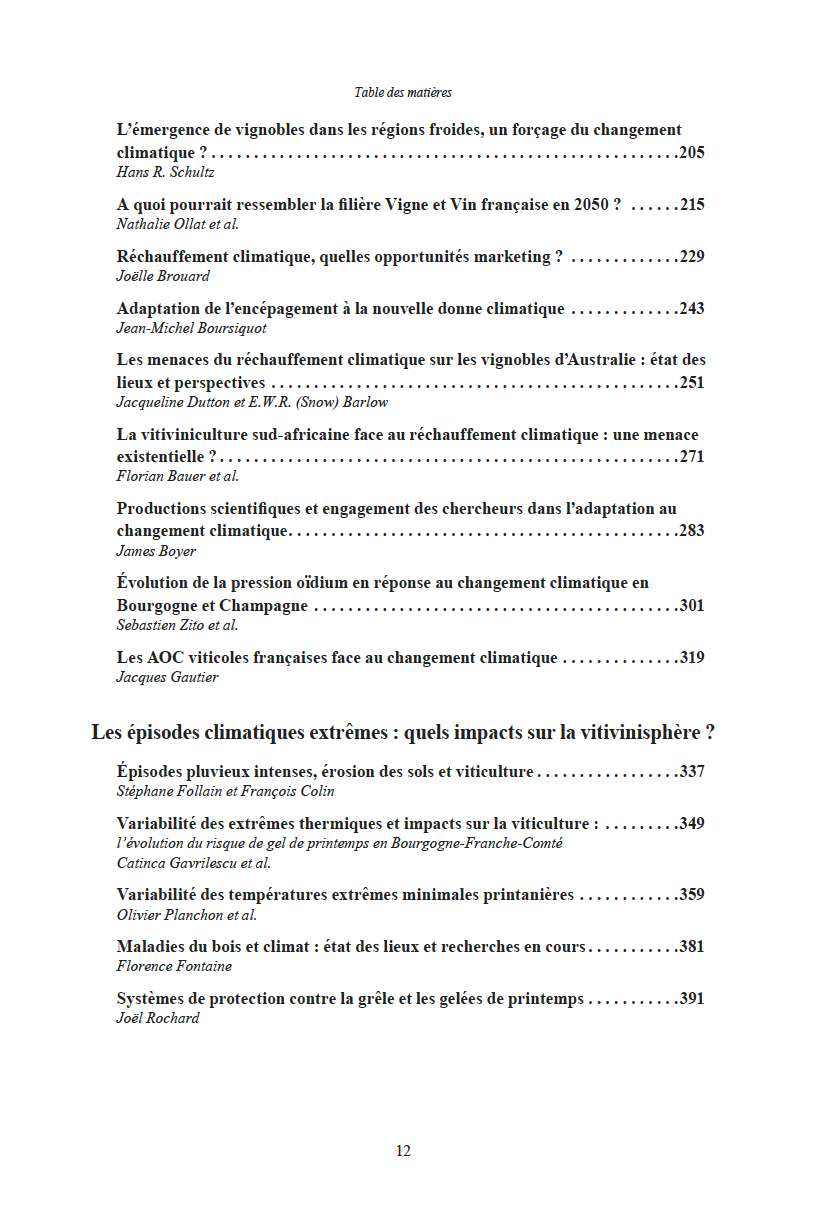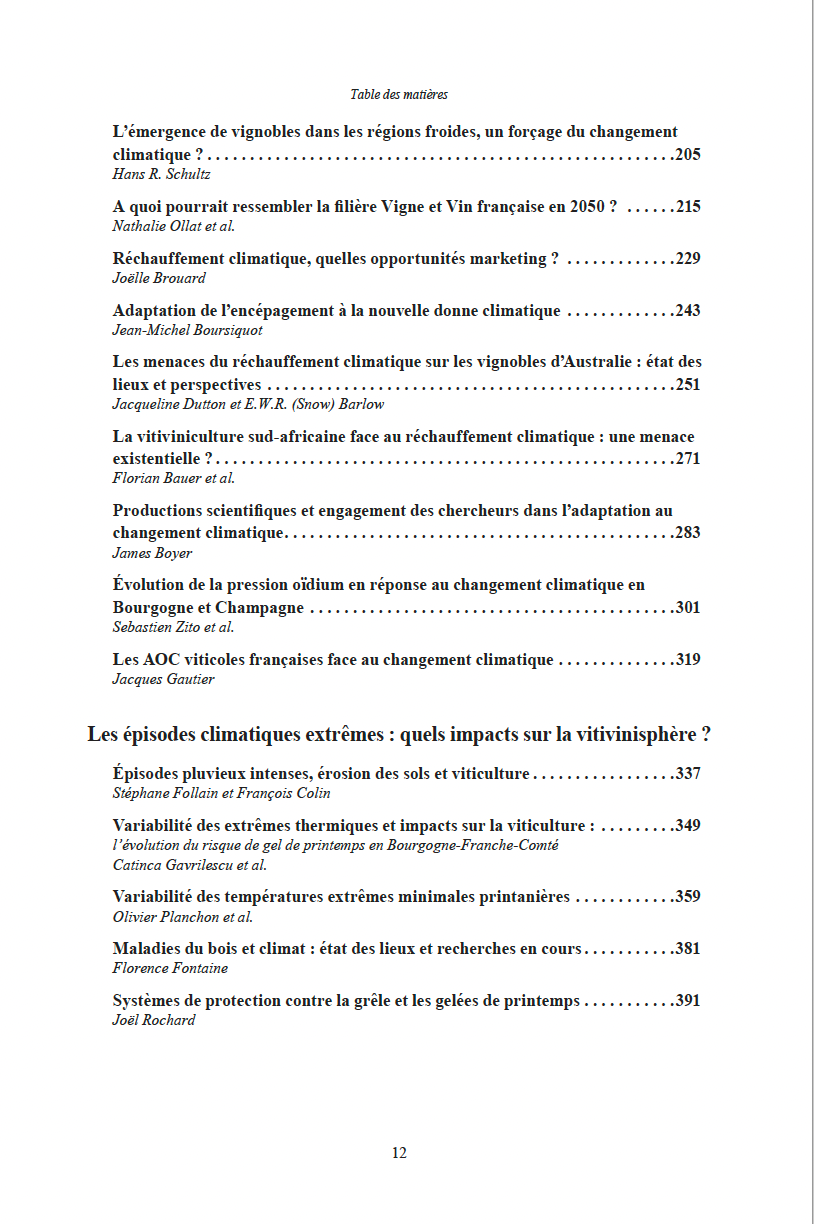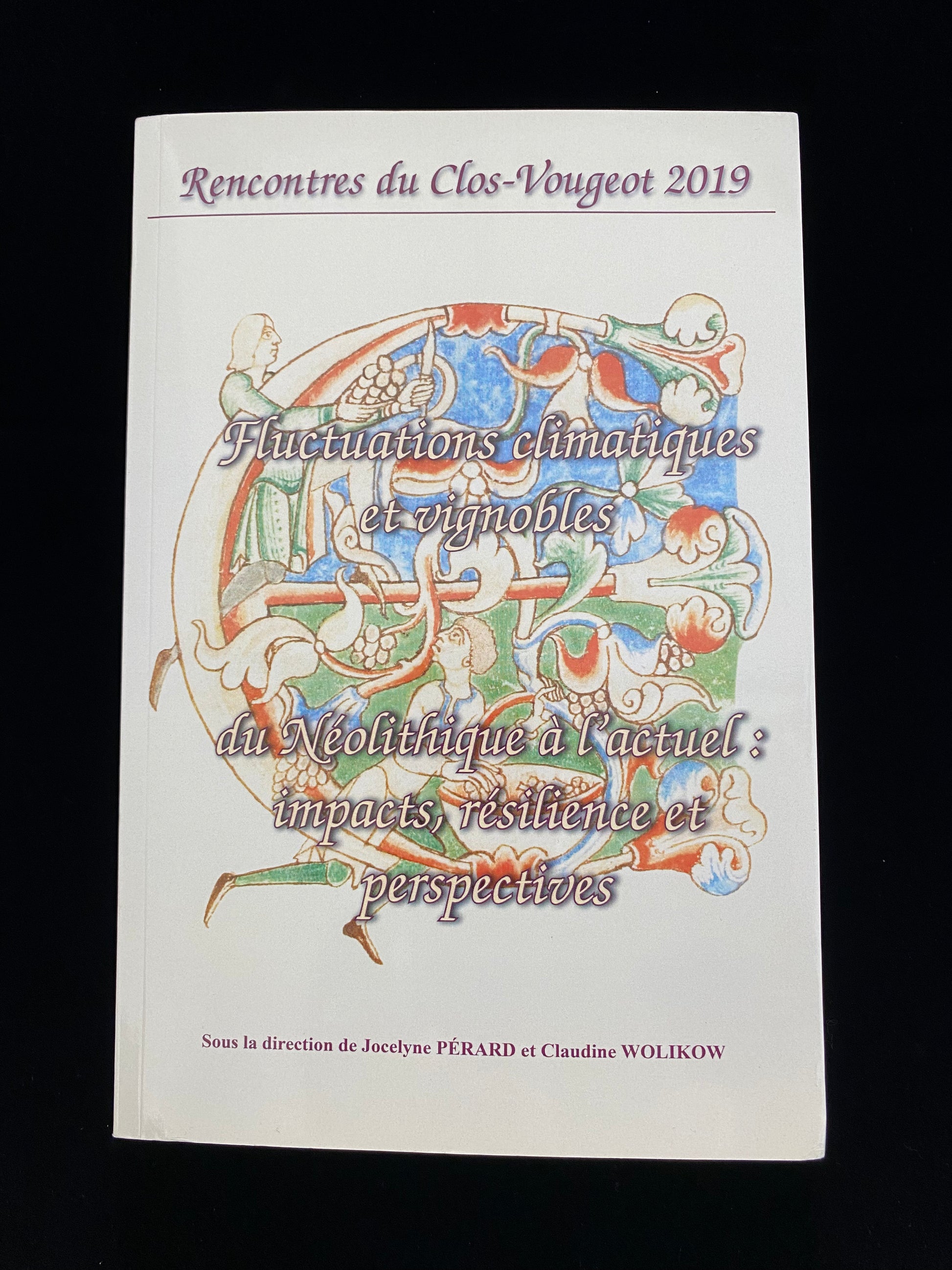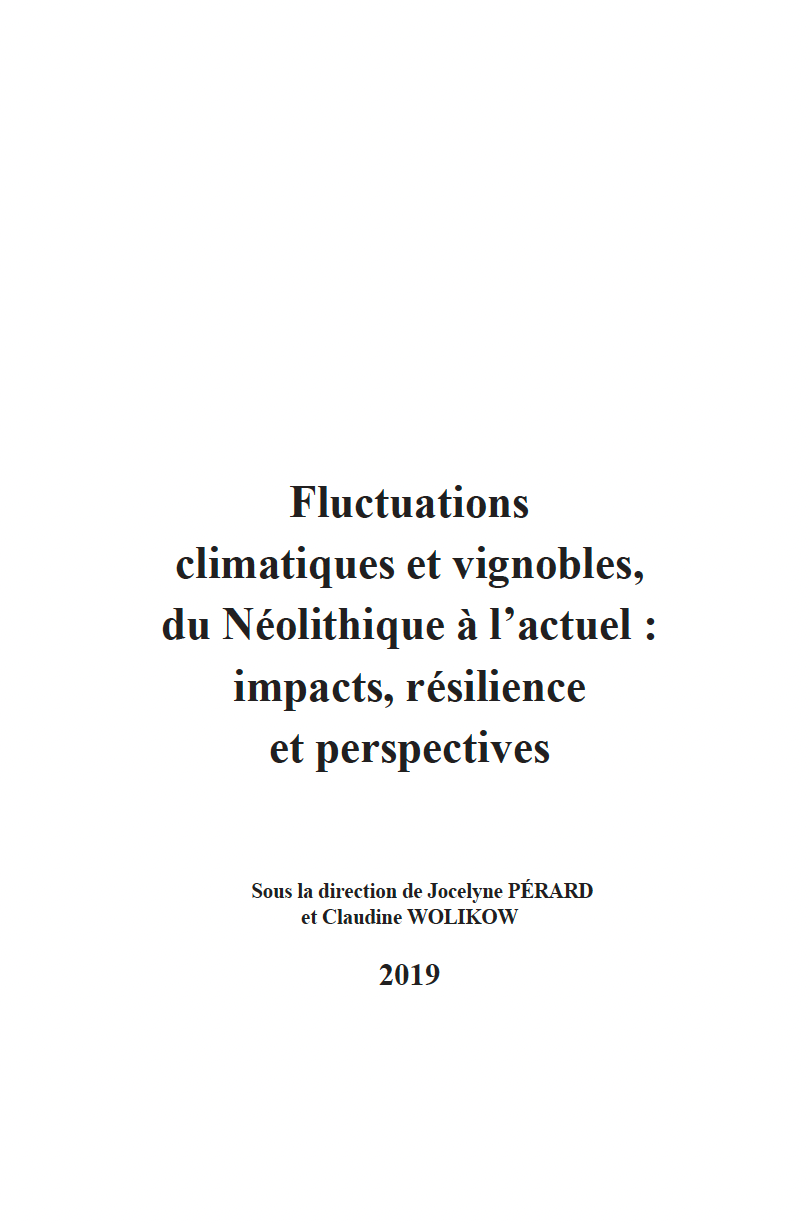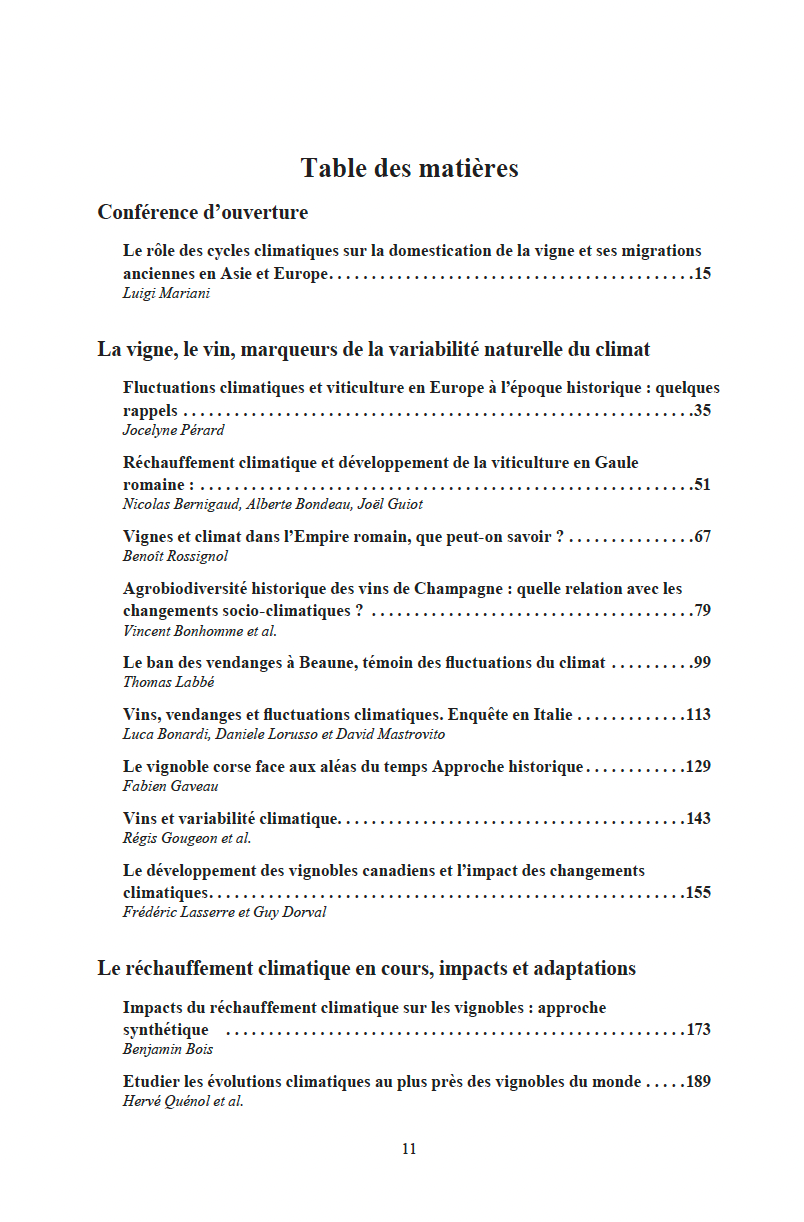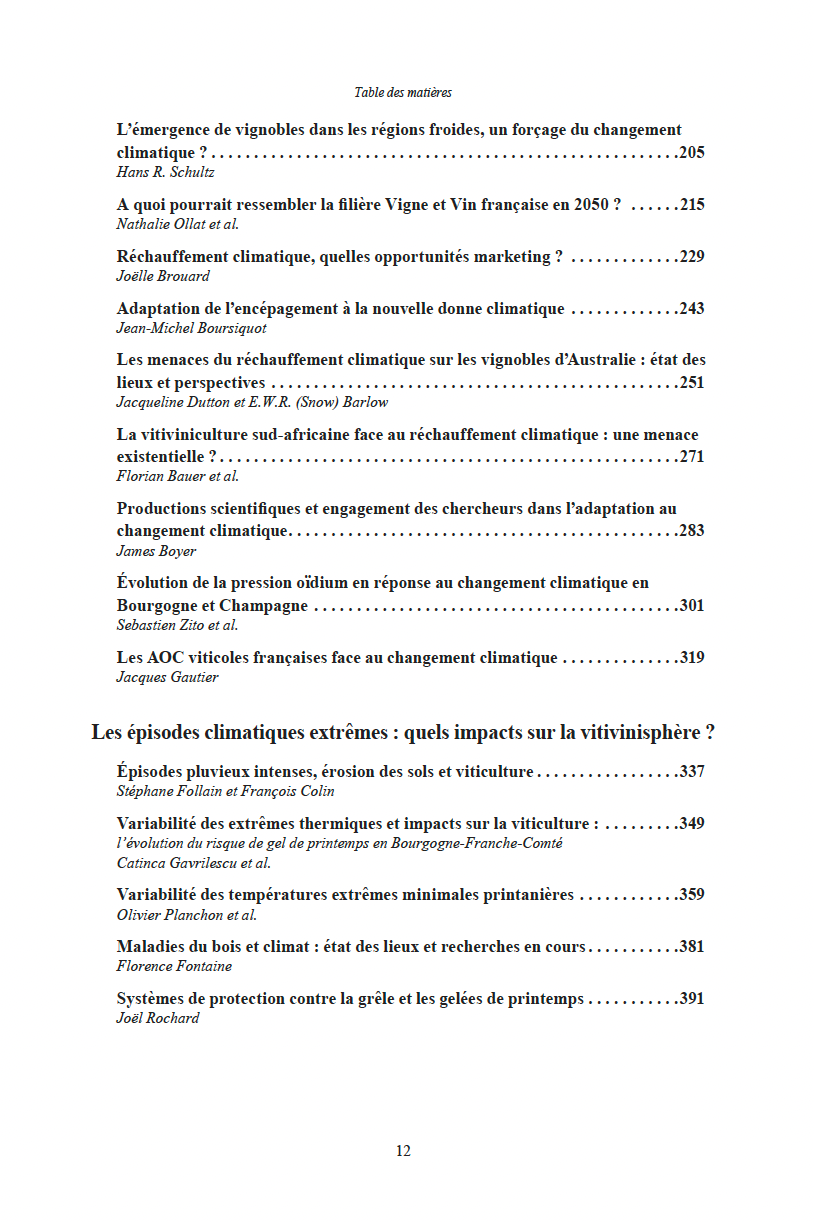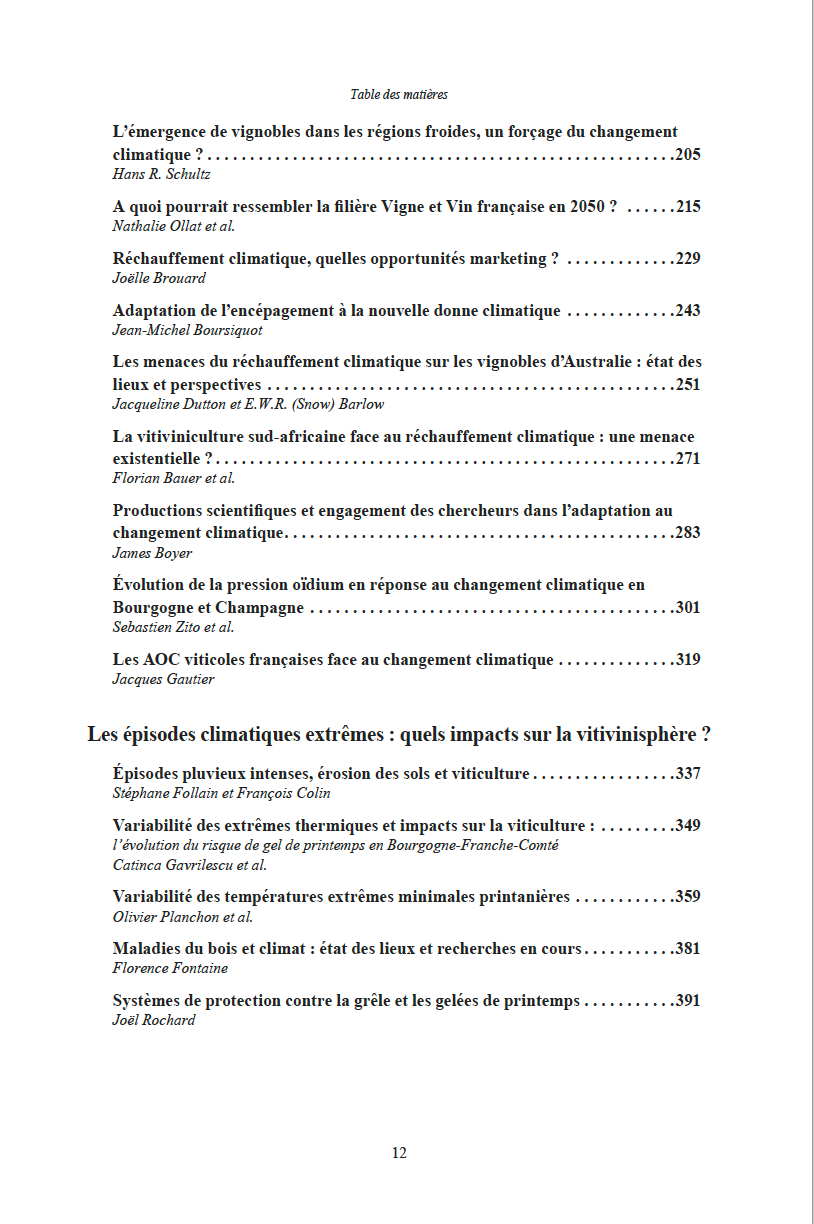RENCONTRES DU CLOS-VOUGEOT
Rencontres du Clos-Vougeot – “Climate fluctuations and vineyards, from the Neolithic to the present: impacts, resilience and perspectives” (2019)
Rencontres du Clos-Vougeot – “Climate fluctuations and vineyards, from the Neolithic to the present: impacts, resilience and perspectives” (2019)
Couldn't load pickup availability
- Under the direction of JOCELYNE PÉRARD and CLAUDINE WOLIKOW
- Publisher: UNESCO Chair “Wine Culture and Traditions”
- French language
- Publication date: 09/2020
- Number of pages: 408
- Dimensions: 16x24 cm
- Weight: 777g
- Format: Softcover
- ISBN: 9782918173298
Presentation :
Initiated and organized by the UNESCO Chair “Culture and Traditions of Wine”, the only UNESCO chair in the world on the issue of vines and wine, the main objective of the Clos Vougeot Meetings is to understand wine
as a cultural product, a vector of civilization, whose enlightened consumption is part of a true art of living and a philosophy linked to conviviality and sharing, humanist values if ever there were one.
These thirteenth Clos-Vougeot Meetings, which took place on October 3, 4 and 5, 2019, dealt with the theme “Climatic fluctuations and vineyards from the Neolithic to the Present: impacts, resilience, perspectives”.
The planet's vineyards are in fact at the heart of issues linked to the current context of strong climate change observed on a global scale, thus raising numerous questions. Will the vineyards and wines of today resemble those of tomorrow? What cultural changes imply these climatic modifications? What adaptations should be considered in the vineyard and in the cellar?
Who will be the actors? Will we witness a profound change in the geography of vineyards?
Did such challenges occur in the past given the constant variability of the climate? Around thirty global specialists working on these themes provide numerous answers to these questions.
This thirteenth volume of the Rencontres du Clos-Vougeot, totally multidisciplinary, proposes to address the evolution of the climate and its impacts on the vineyards over the long term, from the current period of approximately -10,000, to the present day, with projections until the end of the 21st century. He also multiplies the scales of analysis by visiting numerous global vineyards, from the north to the south of the planet.
In a clearly historical perspective, from the Neolithic to the present day, through Roman Antiquity, the Middle Ages or the Modern Era, this work firstly evokes the consequences of the great hot or cold waves of the past climate on the vineyards. He explains the changes, the transformations in cultural practices, the evolution of wines in France (Burgundy, Languedoc, Champs y (Rosse, etc.) as, more broadly, in other countries of Europe and South America. North.
Secondly, the collection focuses on the impacts and adaptations resulting from ongoing global warming. Supported by the most recent research in climatology, agronomy, economics, oenology, ampelography and marketing, this chapter takes the reader on a world tour of vineyards in order to better understand the current consequences of climatic phenomena and the threats they cause. But the contributions also focus on future perspectives linked to these challenges, as well as the most cutting-edge programs developed today to support and mitigate these ongoing changes.
Finally, these acts focus on extreme climatic episodes and their sometimes catastrophic impacts on the vineyards, whether new diseases, intense rain, hail or frost. Using the latest scientific techniques, we attempt to analyze them, explain them and propose adaptations.
The richness and diversity of the scientific presentations of these thirteenth Clos-Vougeot Meetings, peppered with numerous questions for the future of climate change and that of vineyards, underlines the complexity of current planetary evolution. Of course, climate variability is inevitable.
But the general mobilization of human societies to limit warming and pollution, to save terrestrial ecosystems is the absolute priority.
The product is unavailable? Chat with us online to find out more about the next arrival!
Share
